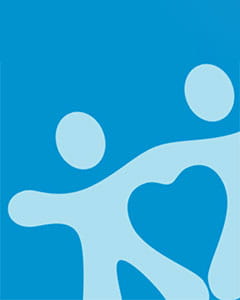Webinar on "Sudden Cardiac Arrest: what every parent should know" with Dr. Schwartz
Sudden cardiac arrest. Those are three frightening words. And they are even scarier when they apply to children.
We’ve all seen the headlines: “Athlete collapses on the field, dies unexpectedly.” Anytime we hear of an athlete collapsing or a child falling and becoming unresponsive, it is an agonizing situation for all involved. As parents, we worry that it might happen to our kid, too. And worst of all, we fear that there is nothing we can do to protect our children from this awful fate.
Isn’t it our job as Mom and Dad to keep terrible things from happening to our little ones? It is our job, and yet it’s not humanly possible to do that all of the time. I think that’s one reason this topic of sudden cardiac arrest really haunts parents.
A little background information
The term “sudden cardiac arrest” simply means that the heart has unexpectedly stopped working. When this occurs, it can be fatal within minutes if left untreated.Sudden cardiac arrest can happen whether a person is at rest or engaged in strenuous physical activity and can occur at any age. However, for those who have an underlying heart condition, athletic participation can make it more likely for the person to experience sudden cardiac arrest.
Certain heart problems that have gone undetected are often the cause when sudden cardiac arrest occurs. In general, these heart problems fall into one of three categories: problems with the structure or functioning of the heart, problems with the electrical activity of the heart, or outside influences such as drugs (illicit or prescription).
Emerging research has identified many cardiac disorders, including several known to be an underlying cause of sudden cardiac death, that have been genetically linked. This means that these disorders often run in families, and an accurate family history is a key tool in identifying those at risk.
While it often seems that these unforeseen cardiac events happen with no warning, research has shown that about half of all victims of sudden cardiac arrest have some history of symptoms or a family history that might have indicated a problem.
There is widespread consensus that sudden cardiac arrest is devastating when it occurs, and we should be sure that children are properly screened to detect any underlying heart conditions. However there is disagreement about how these screenings should take place.
Let’s talk about it
This week, we hosted a webinar on “What every parent should know about sudden cardiac arrest” with Dr. Schwartz, pediatric cardiologist at The Heart Center at Arnold Palmer Hospital.During this webinar, we discussed the warning signs you can look for in your child, how to be sure that your child has undergone proper screening prior to participating in sports, and how to prepare for an emergency should it happen.
Check out this informational webinar below, as Dr. Schwartz addresses the many concerns and issues revolving around sudden cardiac arrest and answers questions submitted by our viewers before and during the live chat.
Resources mentioned during the webinar:
- Family history template
- Recommended pre-participation physical exam form
- To find a CPR course in your area, visit the American Heart Association class connector page.
- Saving Young Hearts is a local non-profit group that helps place AEDs in schools.
- For more educational materials on sudden cardiac arrest, visit the Parent Heart Watch website.







